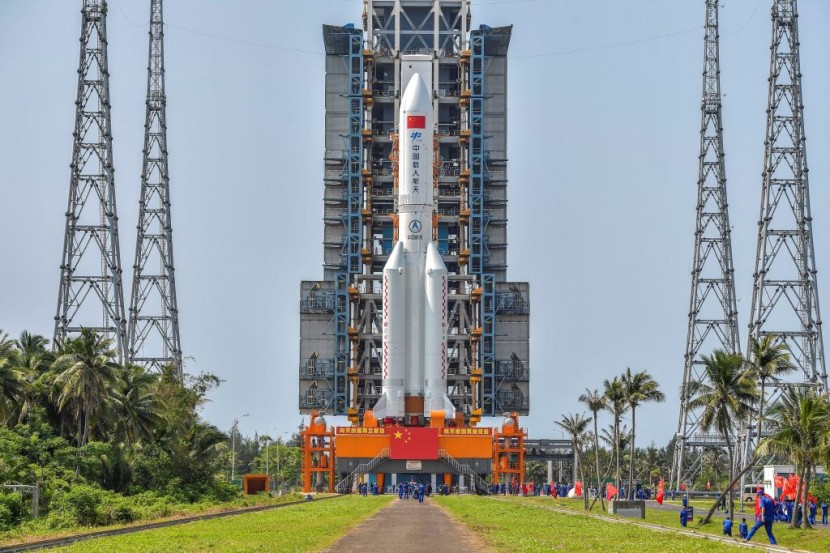
The Chinese space agency recently showcased plenty of new rocket mock-ups similar to SpaceX and Blue Origin for space tourism. The design used by the designers looking for a template to base a homegrown space vehicle.
The final design has the top part the Jeff Bezos, and the body of the spacecraft bears a similarity to the Elon Musk rocket. Added to the design are the SpaceX side fins controlling the descent.
CAS Space is a commercial firm like SpaceX, part of the Chinese Academy of Sciences (CAS), that will make commercial applications of exploiting orbital operations for profit.
Commercial space flight soon
According to CAS Space, it will be 2024 when the first space flights start.
The company had a press statement that up to seven passengers would be accommodating the vehicle once the craft has gone a little over the Kármán line that is outer limits of the Earth's upper atmosphere and outer space approximately 62 miles up, note Wiexin.
Profits from space tourism are actualized by business ventures starting from three billionaires, making science fiction into a potential new enterprise, reported The Daily Mail.
These are Richard Branson, Virgin Galactic, with Jeff Bezos of Amazon are into suborbital space tourists. But, the real winner of the three is Elon Musk, who has not taken a ride but instead chooses four civilians who took a three-day trip around the planet.
CAS Space, the next one in space tours
Refusing to forego the chance to earn from the upcoming space tourism industry, it would be ready with its first crew in two years. The new Chinese space agency showcases a new rocket for space tourism which is the keystone of this new industry.
The actual booster and rocket system are for multiple uses, like the StarshipX. CAS Space will do all the tests to make it ready for real use for a manned mission.
Slated for a scheduled low orbit test launch in 2022, next will be an autonomous mission in 2023. Once the kinks are ironed out to prevent malfunctions and accidents, they will be out in 2024.
One criticism is the firm's intended fast-tracking for research and testing, which took American firms a long time but are now engaging in space tourism.
The Blue Origin had its first demo in 2015 but waited until 2021 to add a crew to an actual flight into orbit just this year.
One of CAS Space's goals is to expose all guests to training as an astronaut for a short time before the launch date. No one mentioned the training's extent, though.
Musk's recent expedition called the 'Insporation4 mission' had four civilians in the mission on the SpaceX Falcon 9 rocket. Unlike the Blue Origin that had a paying customer, these four were chosen, cited Space.
SpaceX did the works to train the four in specific situations that could be met in space, like launching, entering the atmosphere, splashdown, and if the craft needs evacuation.
Musk's competition
Sir Richard Branson is the first billionaire to see space, with six people who skimmed the outer limits of space about 53 miles up on July 11. The crew was free from gravity for eight minutes. Last July 20, Bezos had his journey in his Blue Origin.
CAS Space, a Chinese space agency, showcases a new rocket for space tourism competing in the space industry. However, it will have to wait if the spacecraft will be successful as well.
Related Article: SpaceX Cannot Lift Off Due to Liquid Oxygen Shortage as COVID-19 Patients Need Them in Hospitals
© 2025 HNGN, All rights reserved. Do not reproduce without permission.








